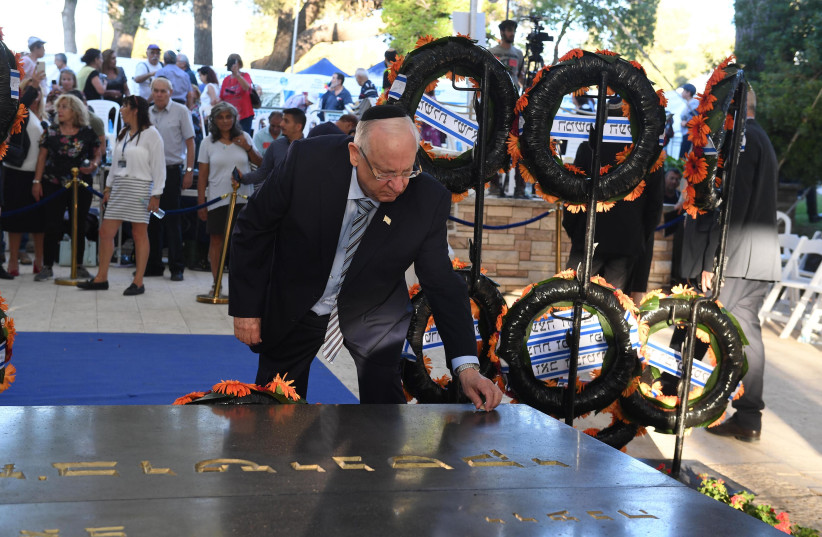Israel’s youth know very little about Ze'ev Jabotinsky or his works, a new poll released on Monday, one day before Israel marks Ze'ev Jabotinsky Day on July 18, revealed.
The survey is seemingly poignantly timed, as Jabotinsky’s most well-known work, “The Iron Wall,” becomes a centenarian this year.
There remains, however, a disconnect between the Jewish State’s desire to highlight the historical figure and the state’s younger generations.
Jabotinsky Day Law was passed in 2005, to “bequeath Ze'ev Jabotinsky's vision, heritage, and achievements for generations, to commemorate him, and to bring about the education of future generations.”
It is observed on the Hebrew date, 29th of Tammuz, a date that marks the Zionist giant’s death, during which the state directs attention, including a memorial service on Mount Herzl, to Jabotinsky’s life.
Nevertheless, basic knowledge of Jabotinsky is estranged from many of Israel’s young Jews.

The pol's' main findings
In fact, 55% of those surveyed responded that they had not learned about Jabotinsky while in school and 84% hadn’t learned about him during informal educational settings.
“Jabotinsky has a lot to say of relevance to us today, even from 100 years ago, so it is a great shame that despite the passage of the Jabotinsky Day Law, very few younger Israelis have learned about him and his vision,” Nave Dromi of the Middle East Forum Israel Office remarked.
“Especially after his ideological descendants, the Right-wing parties, have been largely in power for the last four decades, it is a shame that Zionist education appears to still be tilted away from the Revisionist Movement,” Dromi added. “It could be argued that now more than ever, its principles, including the necessity of defeating one’s enemies, are vital as the Jewish State’s enemies are increasing.”
The polling also found that, among Israeli Jewish youth, despite roughly 40 years of right-wing political dominance, the Revisionist Movement is less well known than the Socialist/Labor Movement and Religious Zionism.
In fact, only about one-tenth of Israeli high school students have learned about the Revisionist Movement at school whereas 31% have learned about the Socialist/Labor.
Students in the national religious sector, according to the polling, seem to be better educated on the matter, 30% of whom responded that they had learned about the Revisionist movement.
Additionally, 95% of high school students are not familiar with Jabotinsky’s essay "The Iron Wall."
Still, 70% of pre-army youth reportedly agree with Jabotinsky's assertion that only a strong Jewish military force will resolve the conflict with the Palestinians. 71% of those polled stated that they believe that Israel’s enemies will only accept its existence if they believe that the Jewish State cannot be defeated in war. Three-quarters of high schoolers believed the same.
Additionally, while roughly seven of ten Jewish youth in 2023 view themselves as right-wing, merely 9% of them could name Jabotinsky, a figure who pioneered the right-wing movement in Israel.
The survey had a sampling error of 4.4%.
The agency that conducted the polling, the Israel Victory Project, states their goal as “to steer Israeli policy toward backing an Israel victory over the Palestinians to resolve the Arab-Israeli conflict. This new paradigm of defeating Palestinian violent rejectionism and terrorism, seeks to convince Palestinians that the Jewish state will endure, drawing on Israel's earlier and successful strategy of deterrence.”
The polling was conducted on July 9 by the Shiluv polling agency for the Middle East Forum’s Israel Victory Project. The polling agency surveyed 500 Jewish youth aged 16-25.
